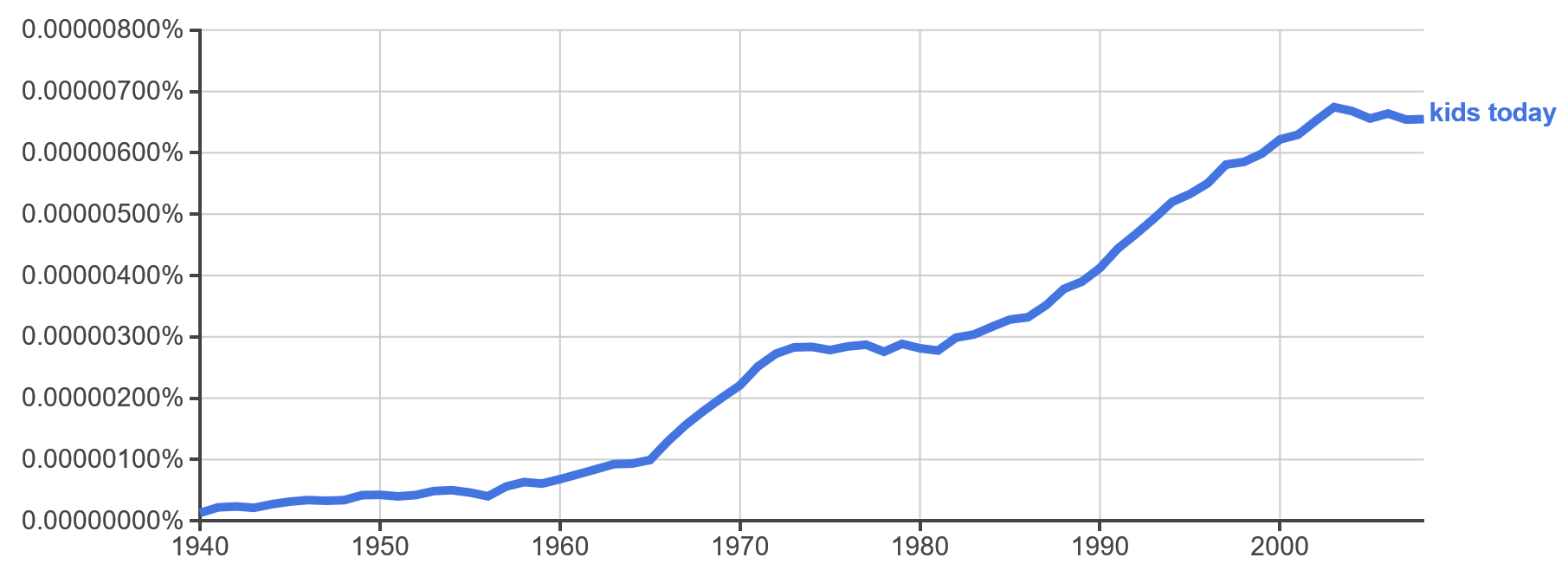I have a project for some enterprising data journalist or PhD student. Maybe this just comes of reading Atrios so much, but I’d like to know if millennials are really being attacked constantly for their perceived deficiencies. You know the drill: slackers, Facebook addicts, always playing video games, etc.
Obviously this stuff is out there. After all, I just reeled off a few examples and it only took me a few seconds to think of them. But is this worse than the Xers had it? Or the boomers? Or the Greatest Generation™? Or Aristotle’s pals compared to Plato’s? The problem is that I can’t think of any reasonable way to investigate this that’s open to a lazy blogger. Take this Google Ngram, for example, which plots the popularity of the phrase “kids today” in books since 1940:

Actually, this is kind of interesting. There’s a sudden surge around 1965 and another surge starting around 1981. Hmmm. And if I had to guess, I’d say that the phrase “kids today” is more often derogatory than not. But I don’t know that. Nor do I know what similar phrases were used in the past. Or if Google’s corpus of books is really representative. Or why Google still hasn’t gotten past 2008 in their Ngram viewer.
In any case, this approach is hopelessly flawed. It would take some really diligent research to come up with a credible longitudinal estimate of disparagement toward the kids unless those Freakonomics guys can come up with some annoyingly clever natural experiment that provides a quick answer. But I’d like to know! Are kids today on the receiving end of more abuse than kids of yesteryear? Who wants to be the Albert Einstein of the generation gap who finally solves this puzzle?
UPDATE: Several people have suggested that the 1965 surge is due to the song “Kids” from the 1963 movie version of Bye Bye Birdie:
Maybe! The timing doesn’t seem quite right, but it’s close. We still need to figure out 1981, though.

















